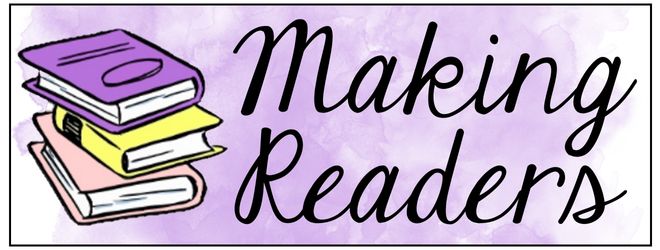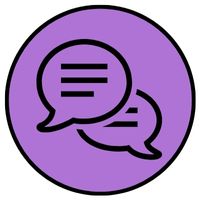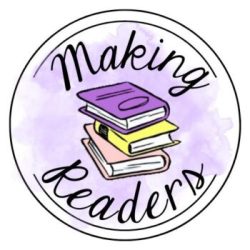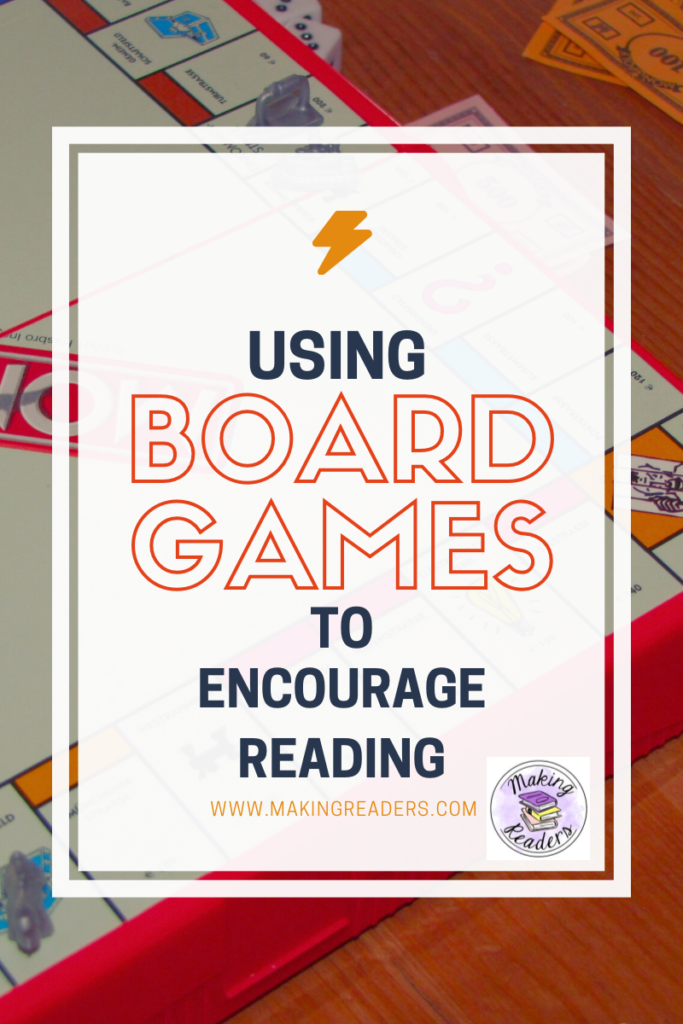
When you were a kid, did your family play board games? Some families play for fun. Some families play for some friendly competition. Some families play board games when the power goes out. But did you know that there are some board games that you can play with your kids or your students that encourage them to read? Yes, using board games to encourage reading! If you have been reading my blogs, you have probably already figured out that one trick that has worked for me is tricking both my students and my own kids to read. Next thing you know, they are enjoying an activity where they have to read to play. (Insert evil laugh here).
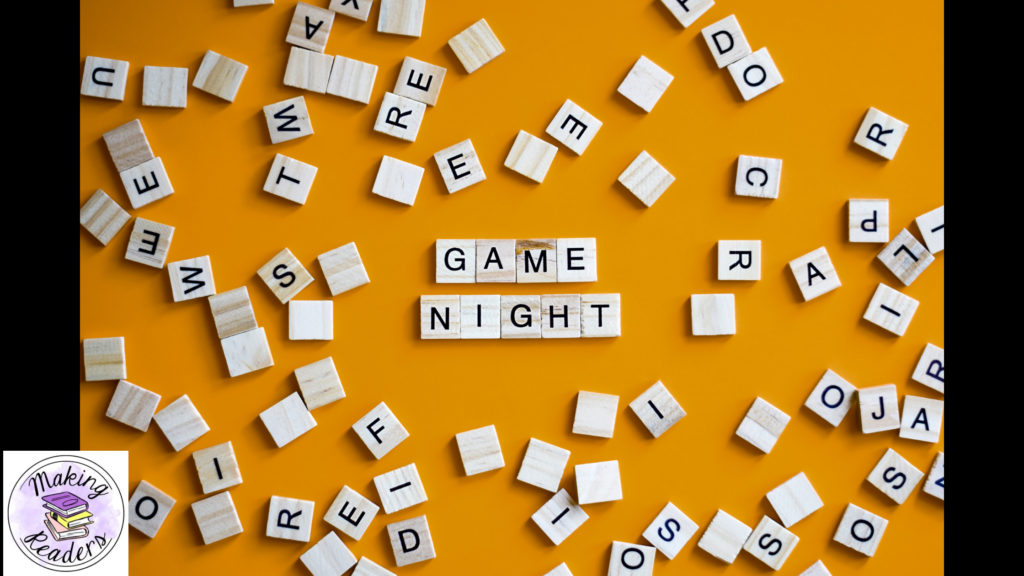
The Benefits of Board Games
There are so many benefits of playing board games. For me, the number one benefit is that it gives us a break from using an electronic device. Instead, we are using the logic and reasoning parts of the brain. Board games can also help work on communication skills, strengthen strategic thinking, improve memory and concentration and even promote math skills. Kids are also inadvertently learning coping skills like how to handle not always winning at every game they play.
How Board Games Strengthen Reading Ability
Did you know that board games also help enhance reading skills? When playing board games, reading skills are essential for understanding and following the game rules, as well as interpreting what the cards say or the proper use of the tiles (like in Scrabble). Players must be able to read and comprehend instructions, game cards, and event cards to make informed decisions and strategically plan their game play. Additionally, reading skills are needed to understand the narrative elements such as game scenarios and background stories that accompany certain board games. Furthermore, players must be able to read and understand descriptions, characteristics, and abilities of game characters or pieces (like in chess) as this information informs their choices and actions during the game. Overall, reading skills play a vital role in enhancing comprehension, engaging with the game mechanics, and enjoying the immersive experience board games have to offer.
How Can Board Games Be Used to Improve Reading Skills?
Board games can be used as an engaging and interactive tool to improve reading skills in several ways:
-
Vocabulary Expansion: Many board games contain cards or game components with unfamiliar words or phrases. Playing these games exposes students to new vocabulary and encourages them to understand and use these words in context.
-
Comprehension Practice: Board games often require players to read and understand game instructions, rules, and cards. This practice helps students improve their reading comprehension skills by analyzing and interpreting written information.
-
Critical Thinking: Board games often involve strategic decision-making and problem-solving. Players need to read and analyze various options and consider their consequences. This process enhances critical thinking skills and encourages thoughtful reading.
-
Contextual Understanding: Board games often incorporate narrative elements, such as scenarios, background stories, or themed settings. Reading and understanding these contextual elements helps students make connections between the game’s content and real-world situations.
-
Information Processing: Board games often include visual representations, charts, and graphs. Players need to read and interpret this visual information, enhancing their ability to process and comprehend complex data.
-
Collaboration and Communication: Many board games require players to communicate and collaborate with others. This interaction promotes reading skills by encouraging students to listen, understand, and respond to verbal and written communication.
-
Engagement and Motivation: Board games provide a fun and interactive way to engage students in reading activities. The excitement of playing a game can motivate students to actively read and participate, making the learning experience more enjoyable and effective.
By incorporating board games into the classroom, educators can create a dynamic and interactive learning environment that promotes reading skills while fostering collaboration, critical thinking, and engagement among students.
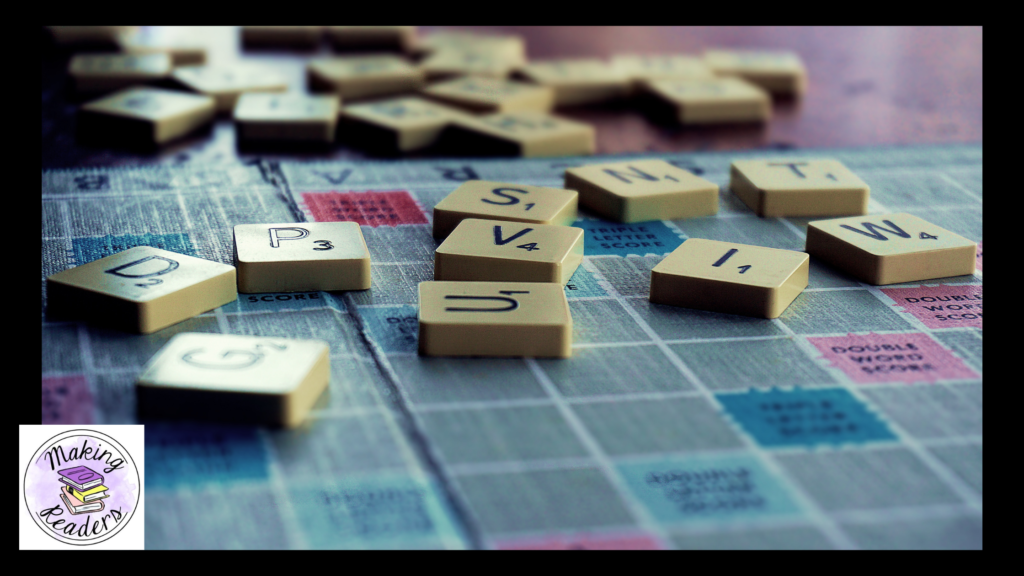
What Board Games Specifically Help Strengthen Reading Skills?
There are several board games that can be specifically helpful with improving reading skills. Here are a few recommendations with affiliate links::
- Scrabble: Scrabble is a classic word game that requires players to create words using letter tiles. This game helps with encoding (spelling), vocabulary and word recognition skills.
- Bananagrams: Similar to Scrabble, is a fast paced word game that challenges players to create words using letter tiles. It helps improve encoding (spelling), word formation skills and vocabulary.
- Boggle: In this game, there are letter cubes that players must use to find words. It helps improve word recognition skills based on knowledge of word families and word patterns as well as encoding skills.
- Apples to Apples: This is a card game that requires players to match nouns to adjectives cards. It expands vocabulary, grammar, word association skills and encourages creative thinking.
- Balderdash: This is a game where players create believable definitions for obscure words. It expands vocabulary, use of context clues and critical thinking. (This game is for ages 12 & up according to the box.)
- Story Cubes: Story Cubes is a dice based game that prompts players to create stories based on the images rolled. It helps sequencing of events, retelling, oral language and use of sequencing words.
- Monopoly: This old favorite helps not only their entrepreneur skills but kids must read the Star Cards and the title cards. The Star Cards help with their comprehension and inferencing skills. The title cards help kids learn that pertinent information comes from text.
- UpWords: This fun game is similar to Scrabble where players build words. Players also stack letters on existing words to make new words and earn more points. This helps with encoding and is very similar to the literacy skill that is often used to help dyslexic students-word chaining.
- Word on the Street or Word on the Street Jr: Each of these games are made for players in a specific age group. Players have to choose a word from a given category and then spell that word. Teams are allowed to challenge the other team if the word is spelled wrong or if the team thinks it is not part of the category. This game helps with encoding, vocabulary and critical thinking skills.
- Wordplay for Kids: This game is a Teacher’s Choice Award winner so it must be a good one! (No biases here!) Players have to spin a spinner that gives them 2 letters that have to be in the word category they have chosen. This games helps with word-building skills, vocabulary and spelling.
Interested in Reading More About How Board Games Encourage or Enhance Reading?
Be sure to check out these blogs or articles:
Our Favorite Board Games for Elementary Students with Overthought This
7 Literacy Boosting Board Games with Scholastic
Did I forget any board games that you can think enhance or encourage reading? Leave me a comment and let me know. After all, we learn best from each other.
Want More Ideas on How to Encourage Reading at Home?
Read these blogs of mine where I share more ways to encourage reading at home:
Parents Can and Should Foster A Love of Reading at Home
